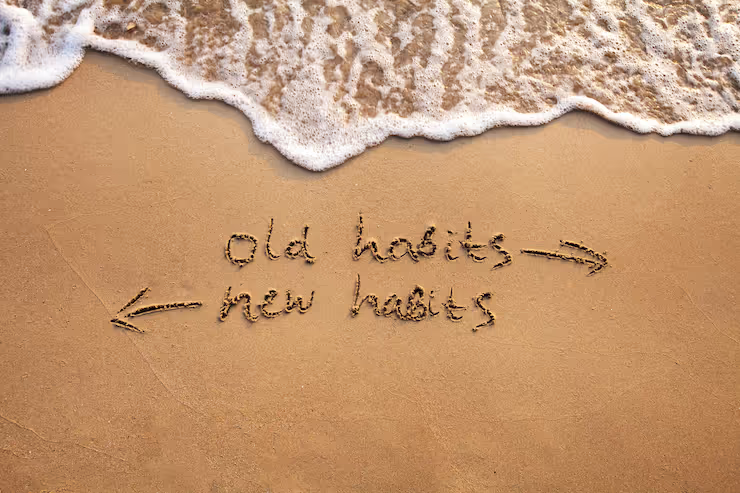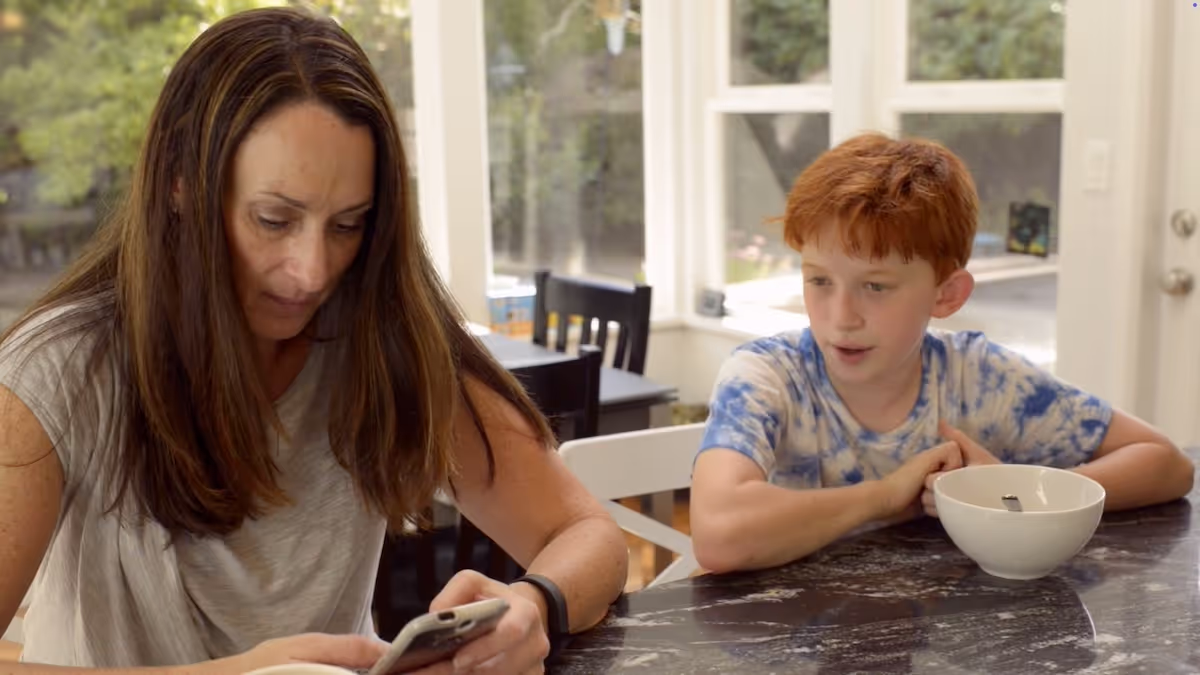


Calling all parents, teachers, counselors, coaches, grandparents, and every other adult who cares about young people.
We have a pledge we would love you to take today!
The pledge is simply to commit to making one small change around a screen time habit for a specific amount of time and to discuss your plans with kids in your life.
Once you take the pledge, tell your child you did, tell them what you aim to try and change and consider even asking them if they will help keep you accountable.
Learn more about showing our movies in your school or community!
Join Screenagers filmmaker Delaney Ruston MD for our latest Podcast

Learn more about our Screen-Free Sleep campaign at the website!
Our movie made for parents and educators of younger kids
Learn more about showing our movies in your school or community!
So often, we use the word resilience and how we want “resilient kids.” However, many kids tell me this term is confusing and vague and ask me what exactly is resilience? One of the central skills of resiliency is being able to stop and assess one's current situation and then come up with ways to make modifications. We build a sense of self-efficacy every time we make little wins in the areas we work to modify. Our kids are eager to build their resiliency skills, and a perfect way to help them is to model our process of working to make a change.
I would bet money that every single one of you reading this can think of some way that there is something related to your devices that either distracts you away from work you need to get done or displaces things you wish you did more.
Making changes, even small ones, can be super challenging, but doing this as a community can be empowering. So right now, let all of us — this wonderful Screenagers community — join together to take this Make a Change Pledge. Inherent in the Pledge is to involve our children and students.
When you click to take the pledge, you won't get asked to say what you plan to change, just that you intend to try and make a change.
So, what type of change do you want to commit to? Don’t overthink it, but by the time you finish reading this blog, just pick something! Perhaps it relates to how you often become distracted when doing work on your computer, or maybe it has to do with how you want to change up one evening a week. Perhaps it has to do with how frequently you reach for your phone.
When choosing, think about the why (the “because”) and what will you replace it with (the instead)? Be sure to tell your kids about these pieces of the pie. And remember, a tiny action can have a significant effect because the chance of success is greater when you make a small change.
(We would love if you write in the comments what you plan to try and change)
Learn more about showing our movies in your school or community!
Join Screenagers filmmaker Delaney Ruston MD for our latest Podcast

Learn more about our Screen-Free Sleep campaign at the website!
Our movie made for parents and educators of younger kids
Join Screenagers filmmaker Delaney Ruston MD for our latest Podcast
There are so many excellent discussion points you can be having with your kids throughout your Make A Change Pledge. For example, when you feel the urge to self-distract with a treat-type screen activity, how will you handle the urge?
I have written several posts regarding behavior change, and you can find them on our Screenagers blog.
As we’re about to celebrate 10 years of Screenagers, we want to hear what’s been most helpful and what you’d like to see next.
Please click here to share your thoughts with us in our community survey. It only takes 5–10 minutes, and everyone who completes it will be entered to win one of five $50 Amazon vouchers.
Calling all parents, teachers, counselors, coaches, grandparents, and every other adult who cares about young people.
We have a pledge we would love you to take today!
The pledge is simply to commit to making one small change around a screen time habit for a specific amount of time and to discuss your plans with kids in your life.
Once you take the pledge, tell your child you did, tell them what you aim to try and change and consider even asking them if they will help keep you accountable.
So often, we use the word resilience and how we want “resilient kids.” However, many kids tell me this term is confusing and vague and ask me what exactly is resilience? One of the central skills of resiliency is being able to stop and assess one's current situation and then come up with ways to make modifications. We build a sense of self-efficacy every time we make little wins in the areas we work to modify. Our kids are eager to build their resiliency skills, and a perfect way to help them is to model our process of working to make a change.
I would bet money that every single one of you reading this can think of some way that there is something related to your devices that either distracts you away from work you need to get done or displaces things you wish you did more.
Making changes, even small ones, can be super challenging, but doing this as a community can be empowering. So right now, let all of us — this wonderful Screenagers community — join together to take this Make a Change Pledge. Inherent in the Pledge is to involve our children and students.
When you click to take the pledge, you won't get asked to say what you plan to change, just that you intend to try and make a change.
So, what type of change do you want to commit to? Don’t overthink it, but by the time you finish reading this blog, just pick something! Perhaps it relates to how you often become distracted when doing work on your computer, or maybe it has to do with how you want to change up one evening a week. Perhaps it has to do with how frequently you reach for your phone.
When choosing, think about the why (the “because”) and what will you replace it with (the instead)? Be sure to tell your kids about these pieces of the pie. And remember, a tiny action can have a significant effect because the chance of success is greater when you make a small change.
(We would love if you write in the comments what you plan to try and change)
There are so many excellent discussion points you can be having with your kids throughout your Make A Change Pledge. For example, when you feel the urge to self-distract with a treat-type screen activity, how will you handle the urge?
I have written several posts regarding behavior change, and you can find them on our Screenagers blog.
Sign up here to receive the weekly Tech Talk Tuesdays newsletter from Screenagers filmmaker Delaney Ruston MD.
We respect your privacy.
Calling all parents, teachers, counselors, coaches, grandparents, and every other adult who cares about young people.
We have a pledge we would love you to take today!
The pledge is simply to commit to making one small change around a screen time habit for a specific amount of time and to discuss your plans with kids in your life.
Once you take the pledge, tell your child you did, tell them what you aim to try and change and consider even asking them if they will help keep you accountable.

Thoughtful family tech rules help protect kids’ wellbeing, learning, and sleep while strengthening connection at home. Using the fresh start of a new year, this post shares eight practical tech habits families can discuss and adapt together, including shared social media check-ins, screen time inventories, device-free meals, regular gaming breaks, and keeping phones out of bedrooms at night.
READ MORE >
Psychologist Jean Twenge explains how parental controls can support healthier tech use by protecting sleep, limiting late night device access, and reducing kids’ exposure to content they are not developmentally ready to handle. She discusses why third party parental control tools are often more effective and easier to use than built in options, while acknowledging that no system is perfect. Clear boundaries, combined with technology based limits, can reduce ongoing conflict and make screen time rules easier to enforce.
READ MORE >
for more like this, DR. DELANEY RUSTON'S NEW BOOK, PARENTING IN THE SCREEN AGE, IS THE DEFINITIVE GUIDE FOR TODAY’S PARENTS. WITH INSIGHTS ON SCREEN TIME FROM RESEARCHERS, INPUT FROM KIDS & TEENS, THIS BOOK IS PACKED WITH SOLUTIONS FOR HOW TO START AND SUSTAIN PRODUCTIVE FAMILY TALKS ABOUT TECHNOLOGY AND IT’S IMPACT ON OUR MENTAL WELLBEING.
